Explore the latest scholarly works at the intersection of digital and intercultural studies and post your own publications on the topic. Our database allows you to search for publications by title, author, publication year and keywords.
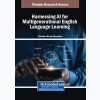
Personalized Adaptive Language Learning in AI–Powered High-Immersion Virtual Reality (2026)
keywords: Language Learning, Virtual Reality
Eunkyoung Elaine Cha
,
Regina Kaplan-Rakowski
,
Yongluan Ye
,
and Prerna Choubey
Chapter
Language(s): English
Abstract:
The integration of artificial intelligence (AI) and virtual reality (VR) into education is growing, expediting the optimization of personalized adaptive language learning (PALL). This chapter discusses the foundations of personalized adaptive learning, explaining its importance for language learners. The potential of AI in language learning and an overview of VR–assisted language learning are presented with a particular focus on the potential of AI embedded into VR, which enables PALL experiences. The role of AI-enhanced high-immersion VR is explained with examples of providing language learners with individualized and contextualized learning environments through immersive real-world based scenarios and simulations. The chapter pinpoints current challenges and future avenues for exploration.
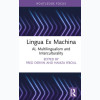
AI and the language factor in intercultural communication – Or what happens to minor languages and the global flow of discourses? (2026)
keywords: Intercultural Communication
Karen Risager
Chapter
Language(s): English
Abstract:
Chapter in "Lingua Ex Machina: AI, Multilingualism and Interculturality" which explores the evolving role of AI in shaping language, communication and intercultural encounters.
The term ‘Lingua Ex Machina’ (literally ‘language from the machine’) encapsulates the paradox of AI acting as both a tool for bridging linguistic and intercultural divides, and a potential amplifier of inequalities. This edited volume brings together critical perspectives on the impact of AI on language diversity, translation, education and the production and dissemination of knowledge. From questioning whether AI is more than a sophisticated ‘parrot’ to examining its effects on minor languages and intercultural education communication and research, the contributors highlight both the promises and drawbacks of machine-mediated communication. They also urge readers to reflect on the future of language, advocating for a reflexive approach to technology that prioritises agency, diversity, and critical engagement.
This interdisciplinary book is an essential read for students, scholars, and practitioners interested in multilingualism, intercultural communication education, and the implications of AI.

AI for Critical Interculturality (2026)
Fred Dervin
Book
Language(s): English
Abstract:
Provocative, interdisciplinary, and daringly critical, AI for Critical Interculturality doesn’t spoon-feed ready-made answers but rather inspires readers to think, question and interrogate interculturality alongside AI.
In a world where AI is often feared as a threat to human intelligence and creativity, the book flips the script by positioning AI as a valuable partner in the study of interculturality as both a scientific and educational notion. How could AI help us dismantle biases, interrogate knowledge production/dissemination and foster deeper self-reflexivity in the broad field of Intercultural Communication Education and Research? What happens when we treat AI not as a passive tool but as an active interlocutor – one that mirrors our ideological blind spots and pushes us toward sharper criticality and reflexivity? Through rich theoretical and conceptual insights, real-world cases and interactive activities, this book equips readers to unmask ideologies in AI-generated knowledge about interculturality; leverage AI as a mirror to expose and confront personal and systemic biases; consider some language stratagems to disrupt linguistic norms in human-AI dialogue. More importantly, the author asks us to forge an ethical and non-utilitarian partnership with AI. This boundary-shattering work invites students, educators and researchers of interculturality to envision and co-create the future of intercultural studies.
Algorithmic governmentality and student subjectivities: a critical examination of learning analytics in higher education (2026)
keywords: Learning analytics; subjectivation; algorithmic governmentality; Foucault; critical data studies
Hannes Hautz & Silvia Lipp
Article / Journal
Language(s): English
Abstract:
This mixed qualitative study uses "algorithmic governmentality" to examine how learning analytics shape student subjectivities among 103 master's students in Austria. Findings show ambivalent responses—enthusiasm, resignation, anxiety—where analytics encourage self-regulation, reduce reflexivity, align behavior with data-driven norms, and risk reproducing educational inequalities. Yet students’ critical engagement also offers possibilities for disruption and reflexive inquiry.
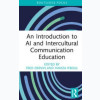
An Introduction to AI and Intercultural Communication Education (2026)
Fred Dervin
,
Hamza R'boul
Book
Language(s): English
Abstract:
An Introduction to AI and Intercultural Communication Education is the first, historic volume to explore the intersection of AI and intercultural communication education, interrogating both the transformative possibilities and ethical dilemmas posed by emerging technologies.
Through diverse scholarly perspectives, the book examines how AI tools, ranging from language models such as ChatGPT and DeepSeek to generative image systems, could reshape the way we teach, research and conceptualise interculturality. While AI offers innovative opportunities for virtual exchanges, automated translation and accessible learning, it also risks reinforcing stereotypes, Western-centric epistemologies and reductive narratives if used uncritically. The contributors address pressing questions: Can AI facilitate decolonial and reflexive approaches to intercultural communication education, or does it inevitably reproduce dominant paradigms? How can educators harness the potential of AI while safeguarding against its pitfalls, such as algorithmic bias and the erasure of indigenous knowledge systems? Combining theoretical critique with case studies, the volume highlights the need for ethical frameworks that prioritise epistemic justice, pluralistic perspectives and human agency in AI-assisted intercultural communication and education.
This book is an indispensable resource for students, researchers and educators interested in the complexities of technology-mediated learning, as well as the broader fields of higher education, intercultural studies and internationalisation and globalisation.
Artificial intelligence, society 5.0 and smart city adaptation initiatives for businesses: An integrated approach (2026)
keywords: Mass migration, Urbanization, City services, Smart city, Society 5.0, Artificial intelligence (AI)
Fernando A.F. Ferreira
,
Florentin Smarandache
,
Inês A.M. Gil
,
Momtaj Khanam
,
Neuza C.M.Q.F. Ferreira
,
Tugrul Daim
Article / Journal
Language(s): English
Abstract:
The mass migration of human populations to urban areas has resulted in unprecedented challenges for city services. To address and find solutions for these emerging issues, decision-makers must embrace the smart city and Society 5.0 paradigms, which comprehensively tackle various dimensions of the problem and ensure adaptability to evolving citizen needs. Central to the success of these paradigms is technology, particularly artificial intelligence (AI). AI’s transformative capabilities enable the expansion of services, automation of tasks, efficient operationalization and processing vast amounts of data to address urban challenges, aligning with several sustainable development goals (SDGs) such as sustainable cities and communities (SDG 11). Municipalities require strategic plans that empower them to adapt to the AI, Society 5.0 and smart city paradigms, involving multiple stakeholders, including businesses. This study presents a multi-criteria analysis system designed to support decision-making in this complex context, considering the subjective nature and inherent complexity of the decision problem. The system development involved input from key decision-makers with relevant expertise, utilizing methodologies such as cognitive mapping and the decision-making trial and evaluation laboratory technique applied in a neutrosophic environment to analyze cause-and-effect relationships between factors affecting adaptation initiatives. Based on a constructivist, process-oriented approach, the developed analysis system can assist decision-makers in navigating uncertainty during evaluations of technology integration. This holistic and comprehensive system promotes informed decision-making within the AI, Society 5.0 and smart city contexts, contributing to the achievement of relevant SDGs.
Decolonizing knowledge in the postdigital era: Pedagogical strategies for navigating AI-driven epistemic transformations (2026)
keywords: Postdigital knowledge society, AI and education, Decolonial epistemology, Epistemic justice
Monika Popow
Article / Journal
Language(s): English
Abstract:
The postdigital era signals a profound ontological rupture in knowledge governance, reshaping the foundations of epistemic authority, intellectual agency, and pedagogical ethics. AI is not a neutral tool but an active agent in automating exclusions across epistemic domains—the systems through which knowledge is produced, legitimized, and accessed. In discussing AI-driven epistemic transformations, the very nature of what we mean by epistemic is called into question. By bringing decolonial and postdigital perspectives into dialogue, this study interrogates how AI-driven infrastructures perpetuate and reconfigure colonial and neoliberal logics. Drawing on Floridi’s philosophy of information, Hayles’ posthumanist critique of cognition, and Stiegler’s theory of technics, it examines how algorithmic governance, predictive analytics, and generative AI (GenAI) transform the conditions of education. Rather than merely embedding objectivity, these systems reinforce technocratic norms while marginalizing non-Western and Indigenous knowledges. As machine-learning technologies increasingly shape educational environments, they call for urgent reconsideration of justice and relational knowledge-making. In response, the paper proposes pedagogical frameworks that resist commodification and standardization, advancing pluralism, historical consciousness, and democratic participation. Education must not passively accommodate AI’s epistemic architecture but instead reclaim its transformative, deliberative role—challenging algorithmic enclosures and cultivating an inclusive, reflexive postdigital knowledge society.
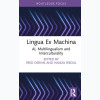
Defining a tricycle: Critical interaction with AI through intercultural lenses (2026)
keywords: Intercultural Communicartion
Zhuang Qiu
Chapter
Language(s): English
Abstract:
Chapter in "Lingua Ex Machina: AI, Multilingualism and Interculturality" which explores the evolving role of AI in shaping language, communication and intercultural encounters.
The term ‘Lingua Ex Machina’ (literally ‘language from the machine’) encapsulates the paradox of AI acting as both a tool for bridging linguistic and intercultural divides, and a potential amplifier of inequalities. This edited volume brings together critical perspectives on the impact of AI on language diversity, translation, education and the production and dissemination of knowledge. From questioning whether AI is more than a sophisticated ‘parrot’ to examining its effects on minor languages and intercultural education communication and research, the contributors highlight both the promises and drawbacks of machine-mediated communication. They also urge readers to reflect on the future of language, advocating for a reflexive approach to technology that prioritises agency, diversity, and critical engagement.
This interdisciplinary book is an essential read for students, scholars, and practitioners interested in multilingualism, intercultural communication education, and the implications of AI.
Feeling higher education futures: affective imaginaries of online teaching for higher education leaders (2026)
keywords: Online pedagogies; digital technologies; affect; imaginaries; future
Ceridwen Owen
,
Margaret Bearman & Rola Ajjawi
,
Rosalyn Black
Article / Journal
Language(s): English
Abstract:
This paper examines how affective imaginaries—emotional orientations toward possible futures—influence visions of online teaching in higher education. From interviews with senior academics in Australia and the UK, four affective stances are identified that shape how academics imagine and enact online learning (including AI-enabled practices). The authors argue legitimizing these affects can help academics collectively mobilize hopes and visions for the future of higher education.
Feeling higher education futures: affective imaginaries of online teaching for higher education leaders (2026)
keywords: Online pedagogies, digital technologies, affect, imaginaries, future
Ceridwen Owen
,
Margaret Bearman & Rola Ajjawi
,
Rosalyn Black
Article / Journal
Language(s): English
Abstract:
Digitally enabled technologies and pedagogies, including the use of AI technologies, have become integral to higher education. Despite this, online teaching continues to give rise to particularly strong and variable affective responses, responses which orient the academics who feel them towards possible futures, whether desired or feared. In this paper, we consider what affective imaginaries might be informing the future of online teaching within higher education. We describe four affective stances which we interpret from our interviews with influential senior academics in Australia and the United Kingdom, and reflect on how affective imaginaries of online learning may be speaking academic practice into being. We conclude that giving legitimacy to the affective may support the collective potential of academics to mobilise their visions and hopes for higher education going forward.
How malicious AI swarms can threaten democracy (2026)
keywords: Artificial intelligence–driven influence, Generative propaganda, Malicious multi-agent AI swarms, Threats to democracy
Daniel Thilo Schroeder et al.
Article / Journal
Language(s): English
Abstract:
Advances in artificial intelligence (AI) offer the prospect of manipulating beliefs and behaviors on a population-wide level (1). Large language models (LLMs) and autonomous agents (2) let influence campaigns reach unprecedented scale and precision. Generative tools can expand propaganda output without sacrificing credibility (3) and inexpensively create falsehoods that are rated as more human-like than those written by humans (3, 4). Techniques meant to refine AI reasoning, such as chain-of-thought prompting, can be used to generate more convincing falsehoods. Enabled by these capabilities, a disruptive threat is emerging: swarms of collaborative, malicious AI agents. Fusing LLM reasoning with multiagent architectures (2), these systems are capable of coordinating autonomously, infiltrating communities, and fabricating consensus efficiently. By adaptively mimicking human social dynamics, they threaten democracy. Because the resulting harms stem from design, commercial incentives, and governance, we prioritize interventions at multiple leverage points, focusing on pragmatic mechanisms over voluntary compliance.
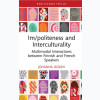
Im/politeness and Interculturality: Multimodal Interactions between Finnish and French Speakers (2026)
keywords: Intercultural Communication
Johanna Isosävi
Book
Language(s): English
Abstract:
This book adopts an interactional pragmatics and multimodal approach to the study of im/politeness, offering unique insights for better understanding intercultural interactions in today’s globalised world.
The volume explores face/identity and its relation to im/politeness, not only through language but through gestures as well. In addition, this study brings greater awareness to analyses of interactions with participants from different cultural backgrounds, specifically drawing upon data from authentic video-recorded interactions between Finnish and French speakers in both personal and professional contexts. Detailed analyses of interactional situations across different phases of life, from family meals to social interactions between students and friends to coaching at work, elucidate both the ways in which face/identity are co-constructed during interactions through an intercultural lens and offers new directions for its further study.
This book will be of interest to students and scholars in pragmatics and intercultural communication.
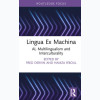
Lingua Ex Machina: AI, Multilingualism and Interculturality (2026)
keywords: AI, Interculturality
Fred Dervin
,
Hamza R'boul
Book
Language(s): English
Abstract:
Lingua Ex Machina: AI, Multilingualism and Interculturality explores the evolving role of AI in shaping language, communication and intercultural encounters.
The term ‘Lingua Ex Machina’ (literally ‘language from the machine’) encapsulates the paradox of AI acting as both a tool for bridging linguistic and intercultural divides, and a potential amplifier of inequalities. This edited volume brings together critical perspectives on the impact of AI on language diversity, translation, education and the production and dissemination of knowledge. From questioning whether AI is more than a sophisticated ‘parrot’ to examining its effects on minor languages and intercultural education communication and research, the contributors highlight both the promises and drawbacks of machine-mediated communication. They also urge readers to reflect on the future of language, advocating for a reflexive approach to technology that prioritises agency, diversity, and critical engagement.
This interdisciplinary book is an essential read for students, scholars, and practitioners interested in multilingualism, intercultural communication education, and the implications of AI
Mapping Memories and Meaning: Visual and Narrative Methods in Research With Older African Refugees (2026)
keywords: diagramming, ecomaps, older African refugees, storytelling, timelines, visuals
Prince Chiagozie Ekoh & Christine A. Walsh
Article / Journal
Language(s): English
Abstract:
There is an increasing scholarly and humanitarian interest in research involving older refugees, marking a notable departure from the historical marginalisation of this demographic within both academic literature, practice, and policy discourses. Despite this emerging focus, there remains a significant gap in the documentation and critical evaluation of methodological approaches tailored to the unique needs and experiences of older refugee populations. While our overarching study explored the social network and support experiences of 11 older African refugees in Calgary, Canada, through a participatory study, this paper presents methodological reflections and insights from the study. The research employed a combination of visual diagramming tools, including timelines and ecomaps, and oral storytelling to explore co-researchers’ migration journeys and evolving social support systems. We advance that these methods facilitated richer, more nuanced articulations of personal narratives, enabling co-researchers to visually and verbally map the complexities of their displacement experiences and their relational networks. We also critically examine the limitations of these approaches, particularly the challenges associated with interpretation and the potential dilution of narrative depth. This paper aims to inform future research design involving older refugees and similarly marginalised groups.
Mapping the intellectual landscape of the sociology of education: a comparative bibliometric analysis (2001–2023) (2026)
keywords: Sociology of education; bibliometric analysis; disciplinary knowledge; educational inequality; educational transformation; comparative education
Amy Shumin Chen
Article / Journal
Language(s): English
Abstract:
This bibliometric study (2001–2023) maps how empirical, cultural, and reflexive orientations in the sociology of education have shifted across the US, UK, and Taiwan. Findings: the US remains empirically dominant; the UK centers reflexive critique; Taiwan develops “translational knowledge” linking global theory to local agendas. The paper highlights how disciplinary power and meaning are reproduced and proposes new theoretical directions.
Organised abandonment in education (2026)
keywords: Organised abandonment, Educational disinvestment, Racialised and classed dispossession, Abandoning places and futures
Alice Willatt
,
Annabel Wilson
,
Arathi Sriprakash
,
Claire Neaves
,
Vivian Látìnwọ ̀ -Ọlájídé
Article / Journal
Language(s): English
Abstract:
This paper considers the histories and geographies of educational disinvestment in England through the lens of Ruth Wilson Gilmore’s ‘organised abandonment’. The concept of organised abandonment refers to the intentional disinvestment in particular communities by state and capitalist interests. Such disinvestment makes groups vulnerable to precarity and harm, entrenching racialised and classed dispossession. Drawing on findings from school- and community- based research in Bristol, England, we show how organised abandonment, when applied to education, functions in two interrelated ways: by ‘abandoning places’ – the material, social and economic infrastructures of children’s lives, and; by ‘abandoning futures’ – the circumscription of educational aspirations and the foreclosing of alternatives for young people. The paper argues that the concept of organised abandonment not only offers a
useful lens to recognise longstanding, active, and deeply felt structural injustices in education, but it also underlines the political necessity of reparative action for the field of education.
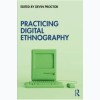
Practicing Digital Ethnography (2026)
Devin Proctor
Book
Language(s): English
Abstract:
Practicing Digital Ethnography offers a comprehensive introduction to the essential methods, concepts, and practices of conducting ethnographic research in digital environments.
Written by sixty global contributors across twelve chapters with accompanying case studies and concept explorations, this book provides both theoretical foundations and practical guidance for digital ethnographic work. It covers research approaches for diverse digital contexts including social media, virtual spaces, video games, and hybrid physical-technological settings, while addressing the deployment of tools like artificial intelligence, big data, mapping technologies, and multimodal methodologies. The book examines ethical challenges specific to digital research environments while maintaining a commitment to reflexive, co-present research that acknowledges how our interactions with digital technologies transcend boundaries of citizenship, race, gender identity, age, and ability.
Practicing Digital Ethnography is ideal for students and researchers in anthropology, media studies, science and technology studies, and communications who seek to understand contemporary hyper-mediated environments, as well as professionals outside academia who need practical, accessible guidance for conducting rigorous digital research.
Queering the curriculum in risk society: challenges in LGBTQ+ inclusive education in UK school settings (2026)
keywords: LGBTQ+; Education; Risk Society; Heteronormativity; Cisnormativit
Rachela Colosi & Nick Cowen
Article / Journal
Language(s): English
Abstract:
The study investigates barriers to delivering LGBTQ+ inclusive curricula in primary and secondary schools—limited school confidence, community opposition, and unclear national policies. Using the “risk society” lens, authors argue that sexual and gender diversity are socially constructed as threats to heteronormative values through political and media discourse. They recommend clear national and school-level policies and LGBTQ+ training for teachers and leaders to build knowledge and confidence and support inclusive practice.
Reframing AI governance in education: insights from the social model of disability (2026)
keywords: Artificial intelligence; social model of disability; digital poverty; dyslexia; education
Bec Marland & Janine Arantes
Article / Journal
Language(s): English
Abstract:
This paper examines how commercial interests shape access to AI assistive tools for students with dyslexia, using the social model of disability and four speculative scenarios: exploitative commercial practices, inadequate institutional policies on digital poverty, developer prioritization of profit over fairness, and weak government oversight. It warns these dynamics can deepen inequities and calls for inclusive AI governance—addressing human, technological, and commercial power—to ensure equitable access, drawing on Australia’s Voluntary AI Safety Standards and contributing to global debates on accessible learning.
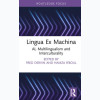
Safe blades or sharp minds: Priorities at AI-interculturality crossroads (2026)
keywords: Intercultural Communication
Wang Qiang
Chapter
Language(s): English
Abstract:
Chapter in "Lingua Ex Machina: AI, Multilingualism and Interculturality" which explores the evolving role of AI in shaping language, communication and intercultural encounters.
The term ‘Lingua Ex Machina’ (literally ‘language from the machine’) encapsulates the paradox of AI acting as both a tool for bridging linguistic and intercultural divides, and a potential amplifier of inequalities. This edited volume brings together critical perspectives on the impact of AI on language diversity, translation, education and the production and dissemination of knowledge. From questioning whether AI is more than a sophisticated ‘parrot’ to examining its effects on minor languages and intercultural education communication and research, the contributors highlight both the promises and drawbacks of machine-mediated communication. They also urge readers to reflect on the future of language, advocating for a reflexive approach to technology that prioritises agency, diversity, and critical engagement.
This interdisciplinary book is an essential read for students, scholars, and practitioners interested in multilingualism, intercultural communication education, and the implications of AI.
Schools, space and atmospheres: the value of student videos in negotiating contested spaces in new urban vertical schools (2026)
keywords: Vertical schools; atmosphere; digital story; student voice; school spaces
Kylie Boltin
,
Prue Miles
,
Stuart Poyntz and Jill Willis
Article / Journal
Language(s): English
Abstract:
This paper examines how youth voices inform civic dialogue about thriving in adult-designed vertical (high-rise) schools in Australia. Drawing on 204 secondary students who produced 96 one-minute digital stories, and close analysis of four videos plus audio-recorded screening discussions, the study shows digital stories surface students’ affective, embodied experiences and tensions, prompting productive dialogue with adults. Findings highlight the value of digital storytelling as a civic mediator and identify unscripted, edge spaces as important for students’ wellbeing and learning in vertical schools, with implications for school and city design.
Software engineering competency models and intercultural communication competencies: A systematic literature review (2026)
keywords: Software engineering, Competency, Competency model, Internationality, Communication, Intercultural, Language
Anu Niva
,
Elina Annanperä
,
Jouni Markkula
Article / Journal
Language(s): English
Abstract:
In the field of Software Engineering (SE), educational institutions are confronted with the demanding responsibility of aligning their curricula to provide students with the competencies — soft and technical — demanded by the evolving job market. Moreover, workplaces are becoming increasingly international, highlighting the competencies required in collaborating with people from diverse linguistic and cultural backgrounds. Competency models offer essential input for curriculum design. Moreover, educators may need to construct their own competency models when international guidelines fall short.
To prepare students for future workplaces, curriculum designers necessitate knowledge to address demands of the international working environment. To gain a deeper understanding of the needs in the international SE context, we conducted a systematic literature review (SLR) to identify and analyze existing SE competency models and their construction, as well as investigate communication, collaboration, intercultural, and language competencies embedded in these models.
This SLR identified 29 competency models across diverse application domains and purposes, constructed using a range of mono- and multi-method approaches, and offering multiple use scenarios for diverse stakeholders. We identified and collected an extensive collection of communication, collaboration, intercultural, and language competencies from the competency models in addition to the elements of the competency model construction process.
Regarding identified competencies, communication and collaboration embody as core components in SE competency models whereas intercultural and language competencies are depreciated. Moreover, competency models and their construction lack international aspects. These findings highlight gaps in current competency models and offer insights into curriculum design to better prepare students for international SE environments.
University-INGO partnerships for refugee education: the case of Elimisha Kakuma (2026)
keywords: higher education, 15by30, inclusion, refugees
Elisa Gamba
Article / Journal
Abstract:
How can higher education institutions contribute more effectively to achieving UN Sustainable Development Goal 4: inclusive and quality education for all? This paper explores the question through the case study of Elimisha Kakuma, an association supporting young refugees in Kakuma Camp, Kenya, in accessing higher education abroad. In collaboration with American, Canadian and UK universities, Elimisha assists students throughout the admissions process, offering tailored support to navigate cultural barriers, application procedures, and financial challenges. Beyond admission, Elimisha prepares students for their transition to life abroad, equipping them with academic skills, emotional resilience, and practical tools for adaptation. The association also provides a dedicated study space within the camp, fostering a learning community supported by resources such as computers, books, and academic mentoring. Through online learning opportunities, students engage early with their future universities, developing a sense of belonging before departure. This paper argues that Elimisha represents a best-practice model of NGO-university collaboration, showing how partnerships beyond academia can create meaningful opportunities for displaced learners. By analysing the strengths and challenges of this initiative, drawing on a field visit to the camp (January 2025) and twelve semi-structured interviews with students, association staff, and university partners, the paper identifies effective strategies and scalable solutions for improving refugee access to higher education worldwide.
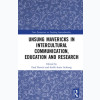
Unsung Mavericks in Intercultural Communication, Education and Research (2026)
keywords: Intercultural Communication
Fred Dervin
,
Stella Anne Achieng
Book
Language(s): English
Abstract:
Stepping into the vibrant and uncharted margins of Intercultural Communication, Education and Research (ICER), this edited volume challenges the field’s established narratives by actively listening to the thinkers, educators and practitioners whose transformative work has previously been overlooked.
Moving beyond clichés, this volume introduces the ‘unsung maverick’ not as a heroic figure but as a precarious rope-dancer performing vital and innovative work without a safety net. Through powerful, first-hand accounts, ranging from autoethnographies to poetic experiments, the contributors pull apart dominant paradigms and reveal how systemic biases and linguistic hierarchies have silenced crucial perspectives. Representing a platform for methodological rebellion and epistemic justice, this book showcases how interculturality is lived and reimagined from the ground up.
For anyone ready to move past the usual references and discover the fertile and creative potential at the edges of ICER, this edited volume urges us to listen, learn and help shape the conversation about interculturality today.

Who’s Afraid of AI? - Intercultural Aspirations, Frictions and Fantasies (2026)
Fred Dervin
,
Hamza R'boul
Book
Language(s): English
Abstract:
This timely edited volume challenges the potentially simplistic blame narratives surrounding artificial intelligence (AI), urging instead a shared ethical responsibility among users, researchers, policymakers, and others.
Rejecting the notion of AI as an autonomous 'evil', the book interrogates how human choices embedded in power structures, colonial legacies, and ideological frameworks can shape AI's impact on intercultural relations. Through decolonial critiques, dialogic experiments, and perspectives from the Global South, the contributors expose algorithmic biases, epistemic injustices, and governance gaps, while advocating for collective agency. From African Ubuntu ethics to Moroccan linguistic and cultural equity, and the political economy of creative industries, the book portrays AI as a mirror of human complexities and contradictions rather than a scapegoat.
A vital resource for students and scholars of intercultural communication education and research, this book calls for reflexive engagement with AI, emphasising co-accountability over unfounded dread.
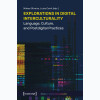
‘Living at the limit’: Sociotechnical affordances and unlearning colonial gender and sexuality (2025)
keywords: unlearning, sociotechnical affordances, (in)securitisation, digital activism, gender and sexuality
Daniel Silva
Chapter
Language(s): English
Abstract:
This chapter examines how sociotechnical affordances of activist education and
digital interaction enabled a pedagogical practice aimed at disentangling learners from
colonial legacies of gender, sexuality, and race. Specifically, I focus on a 2021 Faveladoc
class, a documentary-making workshop held via Google Meet for young favela residents
in Rio de Janeiro, organised by the grassroots NGO Raízes em Movimento. Led by Joice
Lima, a Black social scientist and activist, the class explored what it means to inhabit
a gendered, racialised body shaped by desire within a peripheral space. The interactions among the instructor, the young participants, and the digital and discursive affordances at play gave rise to a situated collective that actively resists (in)securitisation—that is, the process of framing certain populations as existential threats. As territories predominantly inhabited by Black working-class communities, favelas have been key targets of Brazil’s (in)securitisation, subjected to intensified policing and the persistent ‘crossfire’ between the state and organised crime. Against this backdrop, this chapter analyses how this dialogical digital setting fostered unlearning of patriarchy, racism, and LGBTQI-phobia — ultimately repositioning language as hope.
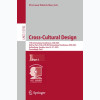
Cross-Cultural Design: 17th International Conference, CCD 2025, Held as Part of the 27th HCI International Conference, HCII 2025, Gothenburg, Sweden, June 22–27, 2025, Proceedings, Part I (2025)
keywords: Cross-cultural design, Cross-cultural communication, Cross-cultural product and service design, Cross-cultural negotiation, Cross-cultural training, Cross-cultural generative AI
Pei-Luen Patrick Rau
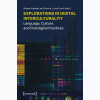
Explorations in Digital Interculturality: Language, Culture, and Postdigital Practices (2025)
Luisa Conti
,
Milene Oliveira
,
ReDICo
Book
Language(s): English
Abstract:
Digital intercultural experiences are shaped by broader sociocultural dynamics, including migration, corporate discourse, and social activism. This volume offers a comprehensive exploration of ‘digital interculturality’, drawing on insights from intercultural communication studies, sociolinguistics, and adjacent fields. The contributors examine how digital technologies—such as social media platforms, translation apps, and artificial intelligence—mediate intercultural encounters, identities, and meaning-making processes. Together, these perspectives advance our understanding of the entanglement of intercultural communication with digital technologies, laying the groundwork for ‘digital interculturality’ as an emerging interdisciplinary field.
first_page settings Order Article Reprints Open AccessArticle Intercultural Dialogue on Indigenous Perspectives: A Digital Learning Experience (2025)
keywords: intercultural dialogue; Indigenous perspectives; COIL; sustainable internationalization; early childhood teacher education
Anne Karin Vikstøl Olsen
,
Kristin Severinsen Spieler
,
Randi Engtrø
Article / Journal
Language(s): English
Abstract:
This research explores how intercultural dialogue through a Collaborative Online International Learning (COIL) project enhances students’ understanding and integration of Indigenous perspectives. The initiative connected Norwegian Early Childhood Teacher Education (ECTE) students with Canadian Teacher Education students to explore Sámi and Métis cultures. Using a qualitative design, focus group interviews with ECTE students employed a hermeneutic approach to interpret experiences and cultural reflections. These insights, analyzed systematically, demonstrated the COIL project’s effectiveness in facilitating intercultural dialogue, fostering intercultural competence, and encouraging self-reflection among participants. Participants developed invaluable skills for integrating Indigenous perspectives into future educational roles, supported by facilitation that enhanced cross-cultural dialogue and language skills. This study underscores the need for frameworks supporting sustained cultural engagement, acknowledging sample size limitations. Findings advocate for the broader integration of intercultural collaborations in strategies, emphasizing education that enhances cultural competence. Future research should expand with larger samples and varied cultures, using longitudinal studies to assess the impacts on professional development and optimize collaboration educational contexts.
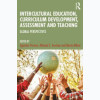
Gaming in Intercultural Education: Promises and Risks (2025)
Marko Siitonen
Chapter
Language(s): English
Abstract:
This chapter considers games and play in the context of intercultural education. The chapter explores three viewpoints that have been of interest to scholars and educators for decades. These include the issue of perspective-taking and role-play, the question of learning to embrace anxiety and uncertainty, and the power of agency. By contrasting concrete examples with theoretical views, the chapter builds an argument for the potential as well as risks related to games as a potential tool in the intercultural educator's toolbox.

Holocaust remembrance in the digital age: The transformative influence of technology, digital archives, and connective memory (2025)
keywords: connective memory, mediated memory, postmemory, digital archives
Oshri Bar gil
Article / Journal
Language(s): English
Abstract:
The digital age has profoundly transformed Holocaust remembrance through the influence of digital archives, connectivity, and emerging technologies. This research investigates the transformation of personal memories into connective memory shaped by online social platforms, Internet search tools, and artificial intelligence. It employs an analysis of digital memory platforms and conducts interviews centered on a specific case study examining the memory patterns of a Holocaust survivor. The increasing reliance on algorithmic mediation raises concerns about the potential distortion and manipulation of historical narratives. This study highlights the need for human agency in memory construction and the challenges of technologically mediated memory. It suggests that collaborative efforts involving scholars, survivors, and community members should continue to play a central role in developing technological tools for remembrance. The implications extend beyond Holocaust memory, informing discussions on the digitization, preservation, and ethical dissemination of technologically mediated historical knowledge in the twenty-first century.
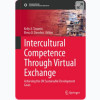
Intercultural Competence Through Virtual Exchange: Achieving the UN Sustainable Development Goals (2025)
Elena D. Douvlou
,
Kelly A. Tzoumis
Book
Language(s): English
Abstract:
This book addresses the importance of sustainability and environmental worldviews and the role of intercultural competencies in achieving SDGs acceptance and their effective implementation. Particularly since the pandemic, there is a growth in online education, and this offers opportunities for educators and students that can be exploited with a focus on sustainability. The book provides examples of virtual exchange including Global South and Global North with tools ranging from Project-Based and Community-Based Service Learning, Debates, Environmental Games and Simulations, Virtual Reality/Augmented Reality, and Accessibility and DEI issues. Additionally, issues of social justice and digital colonialism are a thread through several of the chapters. By providing a broad range of global learning experiences from scholars across several continents from various disciplines that include various post-secondary education based on tools and best practices, the book is a great resource to academics, researchers, and students on approaches to education that prepare the learner for praxis and effective implementation of sustainable solutions for their professional and social future perspectives.
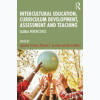
Intercultural Education, Curriculum Development, Assessment and Teaching: Global Perspectives (2025)
Agostino Portera
,
Marta Milani
,
Michael S. Trevisan
Book
Language(s): English
Abstract:
This edited volume explores the specific ability of the school setting to promote intercultural education as an approach to address contemporary, societal issues of justice and social inclusion. Highlighting the importance of schools as one of the first areas where diversity is encountered and experienced, this book offers case study chapters on the most recent pedagogical approaches, research questions, and frameworks for intercultural education and teaching. To address these approaches, the book uses comparative studies, systematic reviews, case study analyses, and theoretical and conceptual discussions. Written by an international team of experts in the field, chapters address new challenges in curriculum development for intercultural education and illustrate innovative ways to provide instruction through the use of technology and the arts. Fusing conceptual and methodological approaches, the book examines interculturality and associated instruction within schools, further exploring the frameworks and methodologies that govern contextually based, culturally responsive education. Offering in-depth treatment of cutting-edge pedagogies used to teach interculturality in culturally diverse settings, this book will be of interest to educators, researchers, and students studying intercultural education and studies, multicultural education, and the sociology of education more broadly.

Internationalization of Higher Education and Digital Transformation: Insights from Morocco and Beyond (2025)
keywords: Cross-Cultural Learning, Moroccan Higher Education, Digital Technologies, Learning Design, Global Education, Large Language Model
Aicha Adoui
Book
Language(s): English
Abstract:
This edited volume provides a comprehensive examination of the intersection between internationalization of higher education and digital transformation, with a focus on insights from Morocco. Through a series of chapters authored by experts in the field, the book covers a wide range of topics, including critical thinking in intercultural education, the transformative impact of internationalization on educators and students, technological integration, challenges, opportunities, policy perspectives, and future directions.

Japanische Fan-Comics: Transkulturelle Potenziale und lokale Gemeinschaft (2025)
Katharina Hülsmann
Book
Language(s): German
Abstract:
In Japan findet jährlich eine Vielzahl von Amateur-Comic-Events, darunter die größte Comic-Messe weltweit, die Comiket, statt. Entgegen dem globalen Trend zur Digitalisierung im Comic-Bereich wird ein Großteil der dortigen Werke nach wie vor von den Künstler*innen selbst verlegt, gedruckt und herausgegeben. Katharina Hülsmann nimmt die Kultur japanischer Fan-Comics (sog. dōjinshi) in den Blick: Wie entwickelte sich eine solch solide Infrastruktur in Japan und warum hält sie sich bis heute? Welche Anschlussmöglichkeiten haben dōjinshi an ein globales Fandom, wenn sie sich im Internet eher wenig verbreiten? Und was treibt japanische Amateur-Künstler*innen an, ihre Werke mit viel Aufwand herzustellen und mit anderen Fans zu teilen?
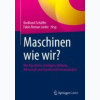
Maschinen wie wir? Wie Künstliche Intelligenz Bildung, Wirtschaft und Gesellschaft herausfordert (2025)
keywords: KI in der Wirtschaft, Verhältnis von Mensch und Maschine, Rolle von KI-Bots in der Wissenschaft, KI in der Hochschullehre, interkulturelle Kommunikation
Burkhard Schäffer
,
Fabio Roman Lieder
Book
Language(s): German, English
Abstract:
Das Buch vermittelt einen disziplinübergreifenden und multiperspektivischen Einblick in die Frage nach der Menschenähnlichkeit von Maschinen bzw. der Maschinenähnlichkeit von Menschen sowie nach den Herausforderungen von Künstlicher Intelligenz in der Bildung, Wirtschaft und Gesellschaft. In den theoretisch fundierten Beiträgen werden zum einen erkenntnis- bzw. grundlagentheoretische Dimensionen gegenwärtiger KI-Entwicklung erläutert. Diskutiert werden Fragen nach der Menschenähnlichkeit von KI, nach dem zukünftigen Miteinander von Menschen und Maschinen und insbesondere die Frage nach den Grenzziehungen zwischen Menschen und Maschinen: Können KI-Systeme ein Bewusstsein, ein Verständnis oder eine Art von intentionalem Handeln entwickeln? Müssen wir also nicht nur von intelligenten, sondern von eigenständigen, kaum noch von Menschen unterscheidbaren KI-Agierenden sprechen? Vor diesem Hintergrund werden dann Herausforderungen in Bildung, Wirtschaft und Gesellschaft thematisiert, die durch die rasanten Entwicklungen der Künstlichen Intelligenz entstehen: Wie werden sich Institutionen, Praktiken und Werte verändern, wenn KI in pädagogische Entscheidungsprozesse eingreift, wirtschaftliche Abläufe neu strukturiert oder kulturelle Muster neu ordnet? Das Buch bietet einen anschaulichen Überblick über die Vielfalt der Disziplinen und Perspektiven, die sich mit KI beschäftigen und beleuchtet KI als Spannungsfeld, welches durch kontrastive Gegenüberstellungen von Hoffnungen und Befürchtungen, von Möglichkeitssinn und Skepsis gekennzeichnet ist.
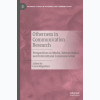
Otherness in Communication Research: Perspectives in Media, Interpersonal, and Intercultural Communication (2025)
keywords: Interpersonal communication, Inequality, Exclusion, Intercultural communication, Media Studies, Lusophone Studies
Luisa Magalhaes
Book
Language(s): English
Abstract:
This book offers various perspectives from media studies, interpersonal communication, and intercultural communication on the experience and effects of being othered, excluded, and treated as less than. Its three sections cover: 1) expressions of otherness in everyday life, 2) experiences of otherness in media discourses and 3) strategies against otherness in social interaction. This book challenges the expression of otherness that is frequently related on texts of colonialism and of western social hegemonic characteristic of the Global North, therefore giving voice to perspectives from the Global South, in a pluralistic reading. The collection of contexts in which the expression of otherness is highlighted in this book, are presented in the perspective of the powerless other. As a receiver involved in a communicative process, the othered individual is approached in relation to his identitarian demonstrations, both in daily life, face-to-face and virtual contexts and in critical situations. These range from households to school and to media environments, therefore enhancing a thorough perspective on the phenomenon of othering in plural contexts.
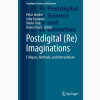
Postdigital (Re)Imaginations: Critiques, Methods, and Interventions (2025)
keywords: Postdigital education, Digital education, Artificial intelligence in education, Sociotechnical imaginaries, Transhumanism, Future studies and education, Capitalist imaginaries, Postdigital research methods in education, Emancipatory pedagogies
Hanna Davis
,
Juha Suoranta
,
Marko Teräs
,
Petar Jandrić
Book
Language(s): English
Abstract:
This edited volume presents the latest achievements of postdigital scholarship in the field of future studies. Showing that current policy frameworks are dominated by capitalist imaginaries, the book insists on the development of radically different futures. This task is approached in five different ways. The book begins with an overview of the many ways to approach postdigital imaginations as emancipatory practices, followed by some urgent reimaginations of older ideas. It moves on to critiques of current practices, policies, and imaginaries, and develops postdigital research methods for the development of emancipatory educational imaginaries. Showcasing some recent interventions in educational politics, policy, and practice, it links presented work on postdigital imaginations with recent postdigital inquiry related to the geopolitics of postdigital educational development. This book is suited for educators, policy-makers, and any researcher fascinated by the unbounding of education from capitalist imaginaries and reframing it within an emancipatory future.
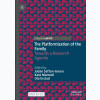
The Platformization of the Family: Towards a Research Agenda (2025)
keywords: platform studies, family studies, families online, media studies, family research, methods, critical data studies, youth studies, informal learning, open access
Julian Sefton-Green
,
Kate Mannell
,
Ola Erstad
Book
Language(s): English
Abstract:
This open access book outlines how the digital platforms that mediate so many aspects of commercial and personal life have begun to transform everyday family existence. It presents theory and research methods to enable students and scholars to investigate the changes that platformization has brought to the routines and interactions of family life including intergenerational communication, interpersonal relationships, forms of care and togetherness. The book emerged from a seminar jointly funded by the Collaboration of Humanities and Social Sciences in Europe project, the Norwegian Research Council and The Australian Centre of Excellence for the Study of the Digital Child.

'Doing Nation' in a Digital Age Banal Nationalism and Cosmopolitanism in Polymedia Environments (2025)
Sanja Vico
Book
Abstract:
This book introduces a new theory of national identity, arguing that the nation does not only represent an abstract “imagined community” but also represents embodied cultural and discursive practices.
Drawing upon a detailed case study of Serbian Londoners, this truly interdisciplinary study positions media as constitutive of national identities. The author contends that nations come into being and are sustained through everyday interpersonal communication practices that have increasingly become mediated, especially for migrants. She develops the concept of "doing nation" to argue that we should think of the nation as a dynamic process. Situated first within a particular migration context, the concept is then applied more broadly as everyday communication practices are becoming increasingly mediated worldwide.
Covering a breadth of key theories and concepts in this field, including diaspora, ethnicity, nationalism, cosmopolitanism, social media affordances and polymedia, this book will appeal to scholars and students researching digital media, migration, identities, nationalism and cosmopolitanism in the social science disciplines.
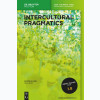
“ChatGPT for intercultural pragmatic learning? potentially, but not yet” – The question of using AI to develop students’ intercultural pragmatic competence (2025)
keywords: AI in education; ChatGPT in language learning; intercultural pragmatic competence; meaning negotiation; self-repair mechanisms
Hanh Dinh
,
István Kecskés
Article / Journal
Language(s): English
Abstract:
The study explores the effectiveness of ChatGPT in fostering intercultural pragmatic competence, focusing on Japanese learners of English. Using Kecskes’ sociocognitive framework, the research examines ChatGPT’s role in conversations involving meaning negotiation and repair mechanisms. The study analyzed over 10,000 responses generated by ChatGPT during interactions with 45 students from different nationalities, ranging from upper-beginner to upper-intermediate proficiency levels, in simulated social situations. A comprehensive examination of AI and participant responses and feedback yields a sophisticated understanding of the AI strengths and flaws, along with intercultural communication repair strategies for meaning negotiation. Specifically, findings reveal that while ChatGPT effectively models certain cooperative aspects of communication, it struggles with maintaining relevance and lacks human-like repair strategies. Students often initiate self-repair instead of other-repair, indicating limited interactive feedback from ChatGPT. Furthermore, excessive information. On the positive side, ChatGPT encourages confidence in students through predictions and co-constructed phrases, although its performance is repetitive and lacks deep contextual understanding. The study recommends cautious use of ChatGPT in pragmatic learning and highlights the need for more advanced frameworks to enhance AI’s role in intercultural communication education.
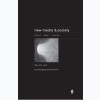
“GOD IS MY SPONSORED AD!! MY ALGORITHM!”: The spiritual algorithmic imaginary and Christian TikTok (2025)
Corrina Laughlin
,
Sara Reinis
Article / Journal
Language(s): English
Abstract:
This article employs Critical Technocultural Discourse Analysis (CTDA) to analyze the affective public surrounding the hashtag #christiantiktok. We find that “Christian TikTok” discursively negotiates the unpredictable visibility affordances of TikTok’s algorithm by ascribing layers of spiritual significance to how the algorithm delivers content. Our research uncovered four key themes to this spiritualized conceptualization of algorithmically controlled visibility: (1) Algorithm as directed by the hand of God, (2) Context collapse as an evangelism opportunity, (3) Boosting visibility as a spiritual obligation, and (4) Invisibility as persecution. Following our analysis, we develop an understanding of the “spiritual algorithmic imaginary,” building on Bucher’s concept of the “algorithmic imaginary.” Functioning as both a networked performance and an affective framework, the concept of the spiritual algorithmic imaginary theorizes how certain spiritual users sacralize their participation in and understanding of digital platforms.
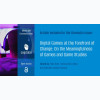
“I bet she’s ‘not like other girls’”: Discursive Construction of the Ideal Gaming Woman on r/GirlGamers (2025)
keywords: female gamers; gender; hostile behaviour; online games; Reddit
Maria Ruotsalainen
,
Mikko Meriläinen
Article / Journal
Language(s): English
Abstract:
Research on women and hostile behaviour in video games has largely focused on women as victims rather than perpetuators of hostile behaviour. In this study, by utilizing discourse analysis, we examine how women’s hostile behaviour is discussed in the subreddit r/GirlGamers, and how the ideal gaming woman is discursively constructed in these discussions.
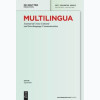
“The team members were very tolerant”: social interactional ideologies and power in an intercultural context (2025)
keywords: intercultural communication; ideological dilemmas; interpretative repertoire; power; social interactional ideologies
Melisa Stevanovic
,
Milene Oliveira
Article / Journal
Language(s): English
Abstract:
Speakers may resort to different inferences and expectations in intercultural encounters. These expectations are influenced by speakers’ socialization processes in speech communities and networks, as well as by the local interactional demands and power dynamics in the communicative situation. While interactional sociolinguistic studies have unveiled intercultural mismatches in how contextualization asymmetries operate in the here-and-now of interaction, less attention has been given to speakers’ normative expectations of good and bad social encounters, as reflected in retrospective accounts of interactional experiences. This article uses critical discursive psychology to examine social interactional ideologies, as German and Chinese students (home and exchange students, respectively) reflect on their experiences in a virtual intercultural game. As an analytical tool, we use the notion of “interpretative repertoires,” i.e., culturally shared ways to construct generally recognizable versions of objects. Our analysis of reflection reports written by the game players shows repertoires addressing ideal behaviors and ideal group features, which tend to place the German students in a more favorable position than the Chinese students. We discuss how local and historical power dynamics are blended in the repertoires and point to the need to critically engage with the social interactional ideologies that exist – but often go unnoticed – in intercultural settings.
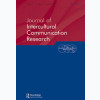
(Re)Defining Intercultural Communication Theorizing: Mapping the Current Landscape of the Field (2025)
keywords: theorizing, theory, intercultural communication, critical perspectives, theoretical contributions
Alice Fanari
,
Diyako Rahmani
,
Mélodine Sommier
Article / Journal
Language(s): English
Abstract:
This two-part special issue of the Journal of Intercultural Communication Research addresses the state of past, present, and future theorizing in intercultural communication scholarship. Articles in this issue touch on one or more of the following themes: engaging in theorizing, not theory; acknowledging identities and voices at the margins; questioning and resisting colonial legacies; prioritizing praxis and social engagement; and humanizing intercultural communication. The empirical and reflexive essays in this issue are guided by diverse theoretical perspectives and each provides a snapshot of the past, present, and future state of intercultural communication theorizing.
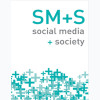
#StopAsianHate as Hashtag Activism: Provocateurs, Celebrities, and Fan Practices of Collective Action Against Racism (2025)
Saif Shahin
Article / Journal
Language(s): English
Abstract:
The #StopAsianHate hashtag movement emerged as a challenge to the rising tide of racism in the United States during the coronavirus pandemic and contributed to the legislation of the Covid-19 Hate Crimes Act. Our research brings together concepts from social movement studies as well as network science and celebrity-fandom studies to examine a corpus of tweets about the movement. We employ a mixed-methods design combining structural topic modeling with digital discourse analysis. Even though the movement rose up against White Supremacist structural racism, we find that right-wing provocateurs with large followings often hijacked its hashtags to amplify sporadic Black-on-Asian violence. But the active participation of Asian celebrities such as BTS, with their own huge followings online, bolstered the movement. Their posts and statements about anti-Asian violence were heavily reposted and dominated the digital discourse. Crucially, we show how their fans helped boost the movement’s anti-racist agenda by repeatedly posting similar messages in concert, which we compare with the offline fan practice of “chanting” as a form of collective identity performance. While theories like the logic of connective action view digital activism as individualized and decentralized, our research elucidates its hierarchical structure and the oversized role of provocateurs and celebrities in raising the visibility of competing claims and agendas by re-contextualizing hashtags. At the same time, culture industries and practices can create bottom-up solidarities that can have a political impact by raising particular agendas in the digital attention economy.
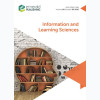
A comparative exploration of virtual reality’s role in Mandarin intercultural communicative competence development (2025)
keywords: Digital media, Virtual reality, Intercultural communicative competence, Instructional development, Mandarin as a foreign language, Production-based learning
Suet Fong Chan; Dorothy DeWitt; Rhett Loban
Article / Journal
Language(s): English
Abstract:
Intercultural communicative competence (ICC) is important when different cultural speakers learn Mandarin as a Foreign Language (MFL). The use of virtual reality (VR) has been shown to be effective for improving ICC. Hence, this study investigates a production-based instructional strategy where students use VR to view and create VR environments with cultural elements for learning MFL to determine if this strategy was effective with the current cohort of students (2023). In addition, it would be investigated whether there was a difference in ICC between the 2019 cohort and the 2023 cohort. The study employed a quasi-experimental method to assess ICC using the Survey of student’s Intercultural Competence (SSIC) and gauged the improvement within the 2023 cohort. Next, the ICC between the 2023 and 2019 cohorts was compared to determine if there was a significant difference. Data was analysed using paired-samples t-tests and thematic analysis for the open-ended responses. There was a significant improvement in ICC after the intervention for the 2023 cohort, which was supported with the open-ended response. However, the t-test results indicated no significant difference in ICC between the 2019 and 2023 cohorts. However, the 2023 cohort seemed to be more motivated, confident and eager to continue using VR. The findings indicate that VR when combined with an appropriate pedagogy could improve students ICC. The use of VR and this production-based instructional strategy could be used in other languages and could possibly be used to improve linguistic and communication skills.

A comparative study on the impact of four different SVVR-supported intercultural learning environments on learners’ intercultural competence and learning engagement (2025)
keywords: SVVR, intercultural competence, embodied cognition theory, learning engagement
Rustam Shadiev
,
Shusheng Shen
,
Wayan Sintawati
,
Xun Wang
Article / Journal
Language(s): English
Abstract:
In the digital age, spherical video-based virtual reality (SVVR) emerges as a powerful tool for intercultural education, enabling immersive experiences that transcend geographical boundaries. However, prevalent research often reduces learners to passive observers, constraining the cultivation of intercultural competence. This study addresses the gap in current research by examining the effects of learning devices and interaction components within SVVR environments, based on embodied cognition theory, on intercultural competence. Additionally, it also focuses on student engagement during intercultural learning in SVVR environments, an aspect that previous studies have insufficiently explored. Using a mixed-methods approach with 80 participants from China and Indonesia, we compared four distinct learning environments: Basic Learning Environment (BLE), Virtual Reality Learning Environment (VRLE), Basic Guide Learning Environment (BGLE), and Embodied interactive Learning Environment (EILE). The findings indicate that the EILE, which achieves a higher level of embodied interaction, significantly enhances intercultural competence and learning engagement compared to other conditions. Specifically, EILE group showed superior emotional and cognitive engagement, as well as diverse and proactive behavioural patterns. This study underscores the importance of educational design in SVVR, showing that careful consideration of learning devices and interactive components can promote active learning, deeper understanding, and positive learning behaviours.

A comprehensive review of intercultural communicative competence in EFL education and global business (2025)
keywords: Intercultural communicative competence, EFL, Chinese education, digital pedagogy, multicultural communication, hybrid identity, globalization
Haochen Xu
,
Ji Ma
,
Yong Wang
Article / Journal
Language(s): English
Abstract:
Intercultural communicative competence (ICC) is an increasingly critical construct in English as a Foreign Language (EFL) education and global professional contexts, particularly amidst rapid globalization and digital transformation. This article systematically reviews prominent ICC frameworks, concurrently addressing the inherent challenges of integrating ICC within EFL curricula in non-English-speaking environments, with a specific focus on China. Furthermore, it investigates the impact of emerging technologies, such as advanced language learning tools, on fostering intercultural learning and interaction. Drawing upon established models, including those proposed by Byram and Deardorff, this study proposes a novel hybrid ICC model that integrates cultural adaptability, digital literacy, and multilingual identity, extending these traditional frameworks to address modern intercultural communication needs. The empirical validity of the proposed model is substantiated by its robust global fit statistics, including Chi-Square (𝜒2) and Root Mean Square Error of Approximation (RMSEA). A brief analysis of local fit (residuals) further corroborates the model’s structural integrity and explanatory power. The interpreted model is an extension of the originally specified frameworks, aiming to meet the demands of contemporary intercultural communication. The paper concludes by offering actionable recommendations for educators and institutions committed to enhancing ICC development within digitally mediated and culturally diverse learning ecosystems.
A digital-intercultural competence model for educational managers: toward sustainable educational leadership in Kazakhstan (2025)
keywords: Development model, Digital competence, Education manager, Innovative learning, Integrated approach, Intercultural competence
Dariya Saudabayeva
,
Zagipa Baliyeva & Zarema Zhiyenbayeva
,
Zholdybay Uspanov
Article / Journal
Language(s): English
Abstract:
The current system for training educational managers in Kazakhstan remains focused on technical and administrative skills, which is inadequate in the context of digital transformation and the age of artificial intelligence. There is a research gap regarding the integration of sustainable social development and new pedagogical models, socio-formation pedagogy, into the management education system. The purpose of this study is to develop a structural-functional model of education that will facilitate the development of professional competencies in future educational managers. The methodology employed includes analysis, modeling, and a quasi-experimental approach, incorporating quantitative analysis of changes in student competencies before and after completing the course. The sample consisted of 150 fourth-year students from three Kazakhstani universities specializing in educational management and related fields. Data were collected using a Likert-type questionnaire and analyzed using the Student’s t-test and other statistical methods to assess the significance of the changes. The results demonstrated that students’ skills significantly improved across all three categories following the implementation of the model. Digital competency increased by 3.2–4.5 points, which was attributed to the active use of digital tools (p < 0.001, t = 10.5). Strategic thinking also improved, albeit at a less significant level (3.1–4.3 points, p < 0.001, t = 9.8), which can be explained by the need for experience and additional learning time to acquire strategic planning skills. Intercultural competencies, essential for working in a globalized educational environment, grew by 3.0–4.2 points (p < 0.001, t = 11.0) due to international online meetings where students interacted with peers from other cultures. The proposed model addresses existing research gaps by integrating the concepts of sustainable social development and social design into management skills training. Its implementation contributes to the development of educational leaders capable of ethical leadership, critical thinking, and effective management of educational transformations.
Similar content being viewed by others
